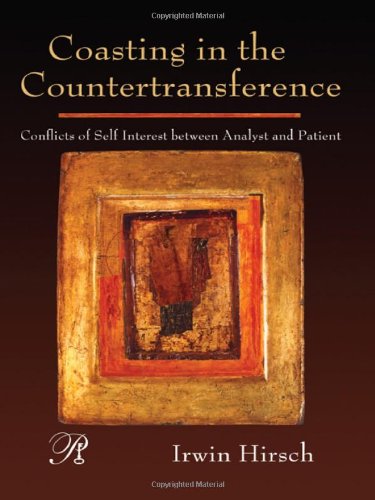

Most ebook files are in PDF format, so you can easily read them using various software such as Foxit Reader or directly on the Google Chrome browser.
Some ebook files are released by publishers in other formats such as .awz, .mobi, .epub, .fb2, etc. You may need to install specific software to read these formats on mobile/PC, such as Calibre.
Please read the tutorial at this link. https://ebooknice.com/page/post?id=faq
We offer FREE conversion to the popular formats you request; however, this may take some time. Therefore, right after payment, please email us, and we will try to provide the service as quickly as possible.
For some exceptional file formats or broken links (if any), please refrain from opening any disputes. Instead, email us first, and we will try to assist within a maximum of 6 hours.
EbookNice Team

Status:
Available0.0
0 reviewsWinner of the 2009 Goethe Award for Psychoanalytic Scholarship!
Irwin Hirsch, author of Coasting in the Countertransference, asserts that countertransference experience always has the potential to be used productively to benefit patients. However, he also observes that it is not unusual for analysts to 'coast' in their countertransferences, and to not use this experience to help treatment progress toward reaching patients' and analysts' stated analytic goals. He believes that it is quite common that analysts who have some conscious awareness of a problematic aspect of countertransference participation, or of a mutual enactment, nevertheless do nothing to change that participation and to use their awareness to move the therapy forward. Instead, analysts may prefer to maintain what has developed into perhaps a mutually comfortable equilibrium in the treatment, possibly rationalizing that the patient is not yet ready to deal with any potential disruption that a more active use of countertransference might precipitate.
This 'coasting' is emblematic of what Hirsch believes to be an ever present (and rarely addressed) conflict between analysts’ self-interest and pursuit of comfortable equilibrium, and what may be ideal for patients’ achievement of analytic aims. The acknowledgment of the power of analysts’ self-interest further highlights the contemporary view of a truly two-person psychology conception of psychoanalytic praxis. Analysts’ embrace of their selfish pursuit of comfortable equilibrium reflects both an acknowledgment of the analyst as a flawed other, and a potential willingness to abandon elements of self-interest for the greater good of the therapeutic project.